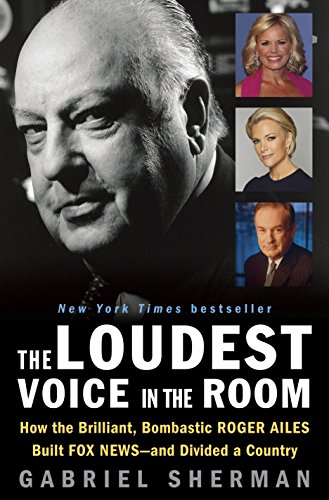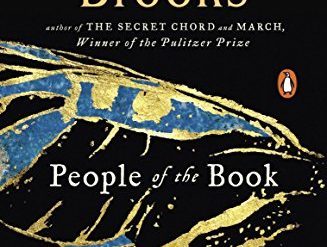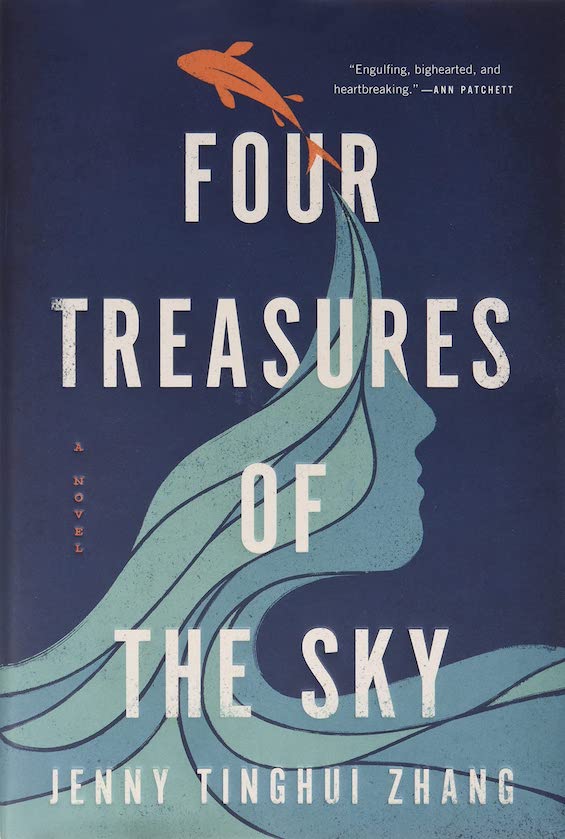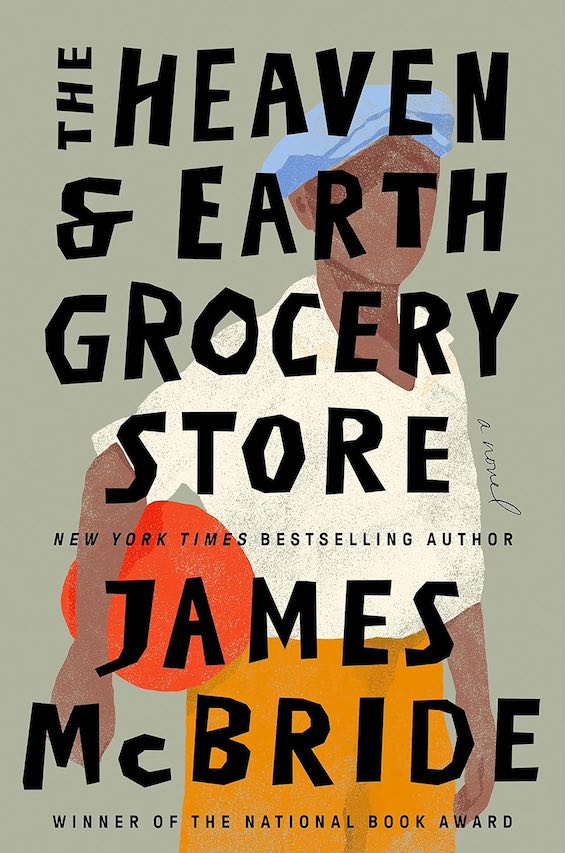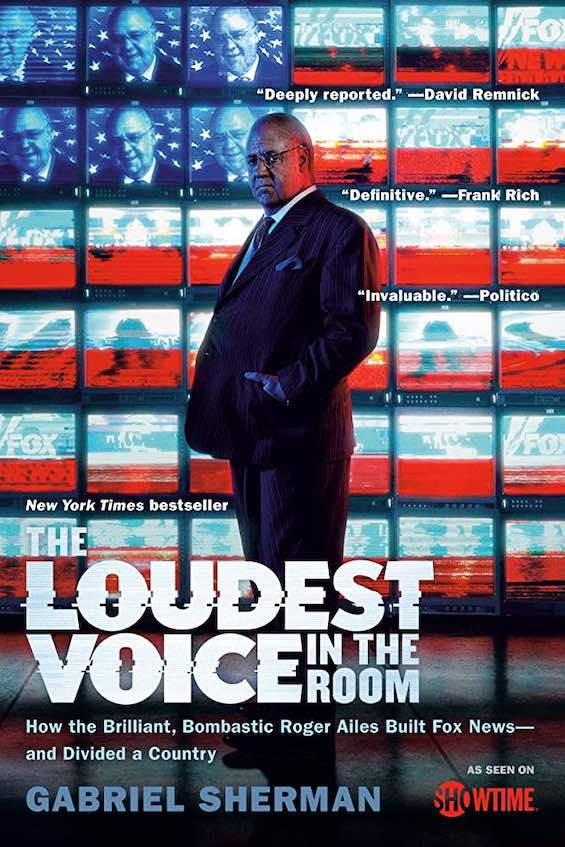
Estimated reading time: 35 minutes
I’ve spent more than half my life in business, engaged in founding or leading a number of small companies. So it’s only natural that I should read a good deal about economic and business history. Here, I’ve listed more than sixty of the best books about the history of business that I’ve read and reviewed in recent years. They’re all nonfiction. I’ve divided them somewhat arbitrarily into four categories: company histories, innovation, finance, and business & society. If you have even a passing interest in the broad subject of business, you’re sure to find at least few books here that will prove rewarding.
I’ve attempted, somewhat arbitrarily, to pick the top 10 books on business history. (Well, I cheated a little. I snuck an eleventh one in there.) That list appears at the top in two groups, with a snippet of my review following each title. In one of the lists further below, you’ll find a one-paragraph note about each of the other books.
I’ve linked each title below to the full review I’ve posted. The books appear in no particular order within each category. Although I’ve selected my top 10, don’t be misled: every one of the books here was well worth reading.
This post was updated on November 29, 2023.
My 10 favorite books about business history

Chocolate Wars: The 150-Year Rivalry Between the World’s Greatest Chocolate Makers by Deborah Cadbury
One of the best ways I’ve found to explore the factors that influence the grand sweep of modern history is to examine the stories of individual companies, industries, and commodities. And among the books I’ve found that have helped the most are The World in a Grain: The Story of Sand and How It Transformed Civilization by Vince Beiser, Empire of Cotton: A Global History by Sven Beckert, and Citizen Coke: The Making of Coca-Cola Capitalism by Bartow J. Elmore. Now chocolate joins sand, cotton, and Coke as a key to explore the depths of business history: Deborah Cadbury‘s Chocolate Wars. Herself a descendant of the illustrious Quaker family that built one of the world’s biggest chocolate manufacturers, Cadbury provides an intimate view of an extraordinary company and its rivals that pioneered a radical new approach to business.
Citizen Coke: The Making of Coca-Cola Capitalism, by Bartow J. Elmore
Originally written as a doctoral thesis in history, this inquiry into the business practices of Coca-Cola paints a decidedly negative picture of the company that possesses “the most-recognized brand in human history.” In the author’s view, the company pioneered what has emerged as the most profitable approach to business in today’s world: a lean mass-marketing machine that outsources both production and distribution of virtually all its products. “Ultimately,” he writes, “Coke’s genius, its secret formula in many ways, was staying out of the business of making stuff.” That’s Coca-Cola Capitalism.
Drive! Henry Ford, George Selden, and the Race to Invent the Auto Age by Lawrence Goldstone
In this revisionist history of the early auto industry, Goldstone makes clear that Ford’s greatest strength did not lie in his limited talents as an inventor or mechanic. He was, in fact, a brilliant manager and businessman. During his early years in the industry, he outsourced the production of the critical parts of his cars because others (chiefly the Dodge brothers) were far better at manufacturing than he was. And he hired men to fill senior positions he despised but tolerated them because they were so good at their jobs. (For example, architect Albert Kahn was a Jew, yet Ford was a virulent anti-Semite.) However, one of the biggest business decisions Henry Ford ever made was to fight a lawsuit. And that lawsuit is the centerpiece of Goldstone’s story.
Freedom’s Forge: How American Business Produced Victory in World War II, by Arthur Herman
Freedom’s Forge focuses on the role that America’s business community, and especially Big Business, played in the monumental effort that resulted in the unconditional surrender of Germany and Japan just months apart in 1945. Two extraordinary men — William S. Knudsen and Henry Kaiser — are the stars of this story, business impresarios who marshaled the stupendous numbers of men and women and the unprecedented mountains of raw materials that supplied the U.S. and its Allies with the weapons of war.
Hell’s Cartel: IG Farben and the Making of Hitler’s War Machine, by Diarmuid Jeffreys
Hell’s Cartel, Diarmuid Jeffreys’ compelling story of the role of Germany’s largest industrial concern in the rise of the Nazis and the conduct of World War II. IG Farben was more than the world’s fourth largest business—it was, in fact, a cartel, or association of separate huge firms for much of its existence—and, more than any other company, it personified German science and Germany’s rise while it dominated much of the German economy between the two World Wars. Jeffrey’s focuses on the war crimes trials that brought 24 of IG Farben’s directors to justice.

The Wright Brothers, by David McCullough
Few of us know any more about the Wright Brothers than the image lingering in our minds of that flimsy biplane lifting off the dunes at Kitty Hawk. Here, the prize-winning biographer David McCullough tells their remarkable story. What’s especially interesting are the years after Kitty Hawk, when the brothers became world famous.
All the Devils Are Here: The Hidden History of the Financial Crisis, by Bethany McLean and Joe Nocera
In 1999, Time Magazine called three men—Alan Greenspan, Larry Summers, and Robert Rubin—the Committee to Save the World. TIME, and no doubt the three men themselves, seemed to think they were the smartest people in the whole wide world. Together, they had put in place the economic policies of the Clinton Administration, many of which we know today as catastrophic. Now, nearly two decades later, they don’t look so smart anymore.
Becoming Steve Jobs: The Evolution of a Reckless Upstart Into a Visionary Leader, by Brent Schlender and Rick Tetzeli
David McCullough’s intimate biography of Apple‘s Steve Jobs grabbed the headlines. And it’s beautifully done, as is all of McCullough’s work. But this later entry from two journalists who followed Jobs closely for many years gives a far more accurate and balanced picture of the man and his life. He was even more complex than we knew.
The Loudest Voice in the Room: How the Brilliant, Bombastic Roger Ailes Built Fox News — and Divided a Country, by Gabriel Sherman
If any one person was most responsible for today’s divisive politics in America — and for the rise of the Tea Party and Donald Trump — it’s Roger Ailes. As the longtime chairman of Fox News, Ailes steadily made Right-Wing extremism ever more respectable. We’re all paying the price for that now and will probably continue to do so for a long time to come.
The Founders: The Story of PayPal and the Entrepreneurs Who Shaped Silicon Valley by Jimmy Soni
At first, there were two companies, not one. It was 1999. Elon Musk was fresh from selling an earlier startup and walking away with $32 million. He poured his newfound fortune into X.com. His goal was to turn the company into an online financial superstore, combining consumer banking, investment banking, insurance, and financial advisory services under one roof.
At about the same time, Peter Thiel teamed up with Max Levchin to form Confinity. After stumbling around in search of a niche, the pair settled on using a new feature on the then-popular PalmPilot. With an infra-red port on a new version of the device, one could beam information from one device to another. Thiel and Levchin decided the answer was to beam money. As an afterthought, both Confinity and X.com offered customers the option to send money by email.
Fierce competition ensued, and it nearly sank both companies. A merger was the only answer.
The First Tycoon: The Epic Life of Cornelius Vanderbilt, by T. J. Stiles
T. J. Stiles won both the Pulitzer Prize and the National Book Award for this outstanding biography of one of the seminal figures in American economic history. Cornelius Vanderbilt was the model for the generation of capitalists who came to be known as Robber Barons.
Good books about business history: company histories
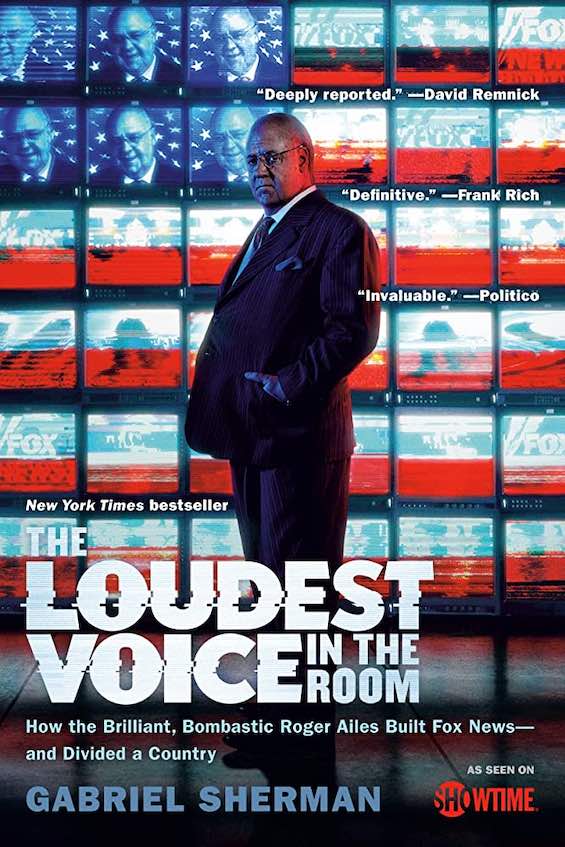
The Profiteers: Bechtel and the Men Who Built the World by Sally Denton
From its earliest days, the senior leadership of Bechtel has favored right-wing politics, inveighing against “communism” and government regulation. Each successive generation of Bechtels has “advocated a consolidated, free-wheeling capitalistic economy unrestrained by government oversight or taxation.” Astonishingly, on one occasion, writing in the journal of the American Academy of Arts and Sciences, Steve Bechtel, Jr. claimed that “the U.S. government has not had a major role in the success of our business.” In reality, however, as Denton emphasizes, “the Bechtel family owes its entire fortune to the US government.”
Ice Cream Social: The Struggle for the Soul of Ben & Jerry’s, by Brad Edmondson
Here is the inside story of one of America’s most iconic companies: Ben & Jerry’s. As Brad Edmondson reveals, the model for socially responsible business wasn’t always on track to place the welfare of its employees, its customers, and the community above the interests of shareholders. There were bumps along the way.
Bad Blood: Secrets and Lies in a Silicon Valley Startup, by John Carreyrou
Bad Blood is a cautionary tale about the corrosive effects of corporate power in Silicon Valley. It’s also vivid evidence for the invaluable role played by investigative journalists, whose work constitutes one of the few checks available in our society on corporate misbehavior. The multi-billion-dollar Theranos scandal detailed in this book is the most dramatic and best-known story of corporate fraud since Enron collapsed in 2001
The Fish That Ate the Whale: The Life and Times of America’s Banana King, by Rich Cohen
The astounding-but-true tale of how a penniless Eastern European immigrant founded the United Fruit Company, helped engineer the murder of the President of Guatemala, and became one of the richest men in the world. It was Samuel Zemurray whose efforts shaped the history several of what came to be called “banana republics.”
The Loudest Voice in the Room: How the Brilliant, Bombastic Roger Ailes Built Fox News — and Divided a Country, by Gabriel Sherman
See Top 10 above for capsule description.
Private Empire: ExxonMobil and American Power, by Steve Coll
Many acute observers of today’s world believe that multinational corporations exert more influence on the course of human affairs than do nation states. Steve Coll’s portrait of ExxonMobil, one of the world’s largest private companies, makes the point vividly.
Citizen Coke: The Making of Coca-Cola Capitalism, by Bartow J. Elmore
See Top 10 above for capsule description.
The Man Who Broke Capitalism: How Jack Welch Gutted the Heartland and Crushed the Soul of Corporate America—and How to Undo His Legacy by David Gelles
A decade before Welch was named CEO, University of Chicago economist Milton Friedman had gained fame by insisting that the true purpose of any business was to make money for its shareholders. He dismissed talk of “the social responsibility of business” as “taxation without representation” for shareholders. Throughout the 1970s, other conservative economists and business school professors built on Friedman’s thesis. Putting shareholders first became a byword in conservative business circles. But in 1981 few if any large US corporations had put policies in place consistent with Friedman’s mandate. Jack Welch changed all that. He became the poster boy for shareholder primacy in the 1980s. And that misguided doctrine has dominated Big Business in America for the past four decades.
Elon Musk by Walter Isaacson
Watching Elon Musk unravel is not a pretty sight. And it seems to have become more common since he purchased Twitter last year. But that’s only because most of the time before then he erupted behind the scenes, reaming out employees at Tesla, SpaceX, or one of his several other companies. And it doesn’t seem a stretch to conclude that the man is nuts, given his self-diagnosis. And that comes to light early in Walter Isaacson’s new Elon Musk biography.
The Tatas: How a Family Built a Business and a Nation by Girish Kuber
With a population of 1.4 billion and the fifth largest economy in the world, India is a giant among nations. Yet a single family has played an outsize role in building the economic engine that makes India what it is today. In no other large nation has any family loomed so large in modern history as the Tata family has in India. Their two-century story is the subject of newspaper editor Girish Kuber’s eye-opening 2019 biography, The Tatas.
Raising Eyebrows: A Failed Entrepreneur Finally Gets It Right by Dal LaMagna
Over the years I’ve participated in several surveys aimed at determining the characteristics of successful entrepreneurs. Finally now, after reading Dal LaMagna‘s brutally honest memoir about his long, eccentric business career, I understand the one truly essential attribute an entrepreneur needs for success: chutzpah. And, in his account of his life as a serial entrepreneur (with one big success at the end), Dal makes entirely clear that it was chutzpah that was the key.
Neither Snow Nor Rain: A History of the United States Postal Service, by Devin Leonard
If Republicans in Congress have their way, the United States Postal Service will become a private company, forced to compete with UPS and Federal Express on an equal footing. Devin Leonard’s history of the postal service from colonial times to the present day makes clear that the distinction between public and private is not clear.
The Times: How the Newspaper of Record Survived Scandal, Scorn, and the Transformation of Journalism by Adam Nagourney
A New York Times reporter tells the story of the tumultuous forty years in the history of his newspaper from 1976 to 2016. He is surprisingly candid about the faults and foibles of its leaders and the scandals that plagued the paper from time to time.
The Sassoons: The Great Global Merchants and the Making of an Empire by Joseph Sassoon
The family was one of the richest in the world, with a fortune built largely on trading opium. They dominated trade in Asia for decades in the 19th century and rose to prominence in England, close to the royal family. Ultimately, their fortune dwindled through the generations.
Becoming Steve Jobs: The Evolution of a Reckless Upstart Into a Visionary Leader, by Brent Schlender and Rick Tetzeli
See Top 10 above for capsule description.
Steve Jobs, by Walter Isaacson
The history of Apple—for a time the world’s largest privately owned company—is fundamentally the story of Steve Jobs. Since he cofounded the company in 197X, Jobs has dominated its evolution whether in or out of the CEO’s job. His obsessive attention to design and detail gave the world several of the iconic products of the early 21st century.
The Everything Store: Jeff Bezos and the Age of Amazon, by Brad Stone
The business journalist Brad Stone explores the world of Amazon and finds it sorely lacking in humanity. Founder Jeff Bezos, as Stone explains, exploits his employees and brutalizes his suppliers. The picture that emerges is of a thoroughly despicable man motivated by greed and guided by a libertarian view of the world. Ayn Rand would have loved this guy.
Amazon Unbound: Jeff Bezos and the Invention of a Global Empire by Brad Stone
How does a company get to be as big as Amazon in just twenty-seven years? And how does a man become as rich as Jeff Bezos? After all, as of this writing Amazon employs nearly 1.5 million people and is valued by the stock market at nearly $1 trillion. That’s trillion, with a T. And Jeff Bezos, with a fortune estimated today at $116 billion, is the third-richest person on Earth. In Amazon Unbound: Jeff Bezos and the Invention of a Global Empire, journalist Brad Stone’s second book on the company and its founder, the answers emerge. The Jeff Bezos story is an impressive tale, but it’s not pretty.
For Blood and Money: Billionaires, Biotech, and the Quest for a Blockbuster Drug by Nathan Vardi
Genentech launched in 1976 to commercialize recombinant DNA technology. Ever since then, biotech has played an increasingly prominent role in the US healthcare industry. A flood of startups has explored every nook and cranny of the possibilities. Venture capitalists and medical researchers have earned billions of dollars from the lifesaving drugs the industry has created. But capitalism being what it is, the five biggest biotech companies in the US today are all legacy pharmaceutical companies. Pfizer. Johnson & Johnson. Roche. Merck. And AbbVie (originally part of Abbott Laboratories). Although some have conducted independent biotech research, most of their growth in the sector has come from buying up startup ventures. And in For Blood and Money, financial journalist Nathan Vardi follows the stories of two closely-related biotech startups from their inception to the billion-dollar fortunes they spawned—and their acquisition by much bigger companies.
Good books about business history: innovation
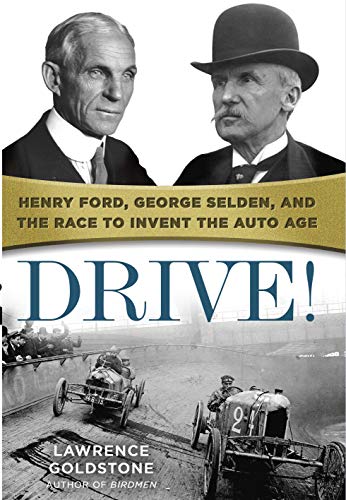
The Metaverse: And How It Will Revolutionize Everything by Matthew Ball
Everybody in the world of technology talks about the Metaverse. But no two people among them seem to agree on what it is, how it will be built, who if anyone will control it, and when it will become a reality. Tech investor Matthew Ball sets out to address this problem in The Metaverse: And How It Will Revolutionize Everything. Building on his own tongue-twisting definition, Ball shares his views on all these questions. Just don’t be surprised after reading the book if you still don’t have a clue what the Metaverse will be like if and when it comes into being. And, despite the promise of the book’s subtitle, you won’t know much about “how the Metaverse will revolutionize everything.” But you will know the right questions to ask.
The Secret Life of Groceries: The Dark Miracle of the American Supermarket by Benjamin Lorr
If you sometimes wonder, as I do, what good civilization has done for us, consider food. For most of the 300,000 years during which homo sapiens has walked on Earth, we devoted nearly all our waking hours to finding and securing food. That began to change about 10,000 years ago with the advent of agriculture. But as late as 1900, we Americans, living in one of the world’s most industrialized countries, still allocated forty percent of our income to pay for the stuff that sustains our lives. Now the comparable figure is ten percent—and “less than 3 percent of our population produces enough food to feed us all.” But, as Benjamin Lorr relates in The Secret Life of Groceries, we pay a high price for the marvels of the American food supply chain and its finest expression, the supermarket. It’s not a pretty picture. Not pretty at all.
Drive! Henry Ford, George Selden, and the Race to Invent the Auto Age by Lawrence Goldstone
See Top 10 above for capsule description.
From Silk to Silicon: The Story of Globalization Through Ten Extraordinary Lives by Jeffrey E. Garten
Garten tells the history of globalization through ten engaging biographical sketches. He includes some of the best-known actors in world history (Genghis Khan, Prince Henry the Navigator, Deng Xiaoping) and others whose names are much less familiar to contemporary readers (Robert Clive, Cyrus Field, Jean Monnet) as well as a handful whose names may be well known today but whose contributions to the history of globalization might be a mystery (Mayer Amschel Rothschild, John D. Rockefeller, Margaret Thatcher, Andrew Grove). Garten’s choices are a decidedly mixed bag, some of whom raise as many questions as they answer.
Genius Makers: The Mavericks Who Brought AI to Google, Facebook, and the World by Cade Metz
A closely-linked network of several score brilliant men and a few women are pushing the boundaries of artificial intelligence research. You’ll meet many of these high-achieving and sometimes eccentric individuals in the pages of Genius Makers. You’ll get a glimpse inside Google, Facebook, Baidu, and other major institutions where most of the cutting-edge AI research is underway. And in these pages, you’ll gain perspective on the issues and uncertainties that trouble this rarefied community. In a more general sense, Genius Makers will also show how the shifting currents of peer pressure influence the course of scientific research.
Uncanny Valley by Anna Wiener
Memoirs and autobiographies are often about score-settling. But that’s not the case with Uncanny Valley, Anna Wiener’s insightful and revealing account of her years working for three tech startups in Silicon Valley. You might expect to know at least the names of the companies where she worked, giving focus to her exposé of the sexism and sometimes cruel management practices she witnessed, but no. Not one of the companies is identified by name. This is a Silicon Valley memoir that is all about one woman’s experience with “the raw male id of the industry, a Greek chorus of the perpetually online.”
American Disruptor: The Scandalous Life of Leland Stanford by Roland de Wolk
He founded Stanford University to honor his fifteen-year-old son who died of typhoid fever — and left the university near bankruptcy when he died, without an endowment. He was elected as California’s eighth Governor when his business partners effectively bought the job for him after he had lost four previous election campaigns by embarrassing margins. His crowning achievement was the completion of the transcontinental railway, a feat financed by the federal government with loans he never repaid. This otherwise ordinary man whose principal virtue was persistence was Leland Stanford, the subject of journalist Roland de Wolk’s superb new account of Stanford’s “preposterous career and life,” American Disruptor.
Coders: The Making of a New Tribe and the Remaking of the World by Clive Thompson
The first computer programmer was a woman. Ada Lovelace, Lord Byron’s daughter, wrote code in 1842-43 for Charles Babbage‘s Analytical Engine, a computer that was never built. And a century later, when the first digital computers finally came into existence, the programmers were predominantly female. In fact, women continued to dominate the field well into the 1960s. Only then did men begin to find the job attractive. Today, of course, coding—a trendier name for computer programming—is overwhelmingly male. And some men even make the outrageous and easily refuted claim that women are genetically unsuited to the field.
Troublemakers: Silicon Valley’s Coming of Age by Leslie Berlin
“Innovation is a team sport,” Berlin writes in the introduction to her book. She makes clear that her intention is to tell the stories of more than just the usual suspects. “Troublemakers . . . feature[s] some of the most famous names in Silicon Valley history, while also profiling seven other individuals in depth.” More famous people such as Steve Jobs and Larry Page make brief appearances.
The Space Barons: Elon Musk, Jeff Bezos, and the Quest to Colonize the Cosmos by Christian Davenport
Davenport’s subject in The Space Barons is the pivotal role of four billionaires and the private space companies they’ve started in the emergence of the rejuvenated space industry. All four men envision lowering the cost of space travel and making it more accessible—and Davenport makes clear that they have taken great strides toward this goal. Although Elon Musk (SpaceX and Tesla) and Jeff Bezos (Amazon) occupy center stage, Paul Allen (cofounder of Microsoft) and Richard Branson (the Virgin companies) also play large roles. Davenport tells the tale with great assurance in prose that is always lively and engaging.
The One Device: The Secret History of the iPhone by Brian Merchant
Other Silicon Valley observers have written about the development of the iPhone—but it’s unlikely that anyone else has delved as deeply into the subject as Brian Merchant . . . or will ever do so in the future, for that matter. Merchant’s brilliant new book, The One Device: The Secret History of the iPhone, tells the tale from the mining of the minerals from which the phone is crafted to the oppressive working conditions in Apple’s Chinese manufacturing plants and the scavengers at Third World dumps where discarded iPhones are sometimes now found.
The Upstarts: How Uber, Airbnb, and the Killer Companies of the New Silicon Valley Are Changing the World by Brad Stone
“Airbnb and Uber didn’t spawn ‘the sharing economy,'” Stone writes, “. . . so much as usher in a new trust economy, helping regular folks to negotiate transportation and accommodations in the age of ubiquitous internet access.” Even before going public, the two companies together were valued at close to $100 billion. There is no evidence that their principals have shared any appreciable portion of that wealth. Nor does it seem consistent with a gentle label such as “the sharing economy” for Uber to resist every effort to classify its drivers as employees and provide them with benefits.
Chaos Monkeys: Obscene Fortune and Random Failure in Silicon Valley by Antonio Garcia Martinez
Chaos Monkeys reveals the ins and outs of venture capital, the vicissitudes of launching a tech company, the intricacies of compensation in Silicon Valley, the divide between the Valley’s “haves” (early hires) and “have-nots” (most of the rest), and the internecine warfare among the behemoths of the technology world (Google, Facebook, Amazon, Microsoft). And Martinez writes about it all in a take-no-prisoners style that is at once profane, colorful, and incisive.
Digital Gold: Bitcoin and the Inside Story of the Misfits and Millionaires Trying to Reinvent Money by Nathaniel Popper
The early adopters of Bitcoins were self-styled libertarians who saw the new currency as a way to free society from the grip of government everywhere. However, Bitcoins didn’t rise to the attention of many others until one early adopter—an anarchist, really, despite what he might have called himself—set up a website for drug dealers and arms traffickers called Silk Road. The enormous traffic in Bitcoins created by Silk Road raised the level of activity manyfold and helped Bitcoin gain wider acceptance.
The Wright Brothers, by David McCullough
See Top 10 above for capsule description.
Rooftop Revolution: How Solar Power Can Save Our Economy — and our Planet — from Dirty Energy, by Danny Kennedy
The move to solar energy is inevitable. Sooner or later, the economic advantages of solar will be so compelling that the relatively few people today who still believe the coal and oil industries’ propaganda will eventually be forced to decide to install photovoltaic panels on their rooftops and commercial buildings. That’s the message that emerges from reading between the lines of Rooftop Revolution, the paean to solar energy by Danny Kennedy, one of the avatars of the rising solar industry.
Googled: The End of the World As We Know It, by Ken Auletta
Read this book, and you’ll understand why Google’s stock price stays in the stratosphere, why media executives from newspapers to films to television are terrified by the company—and why the Chinese government feels it necessary to rein it in. You’ll also understand how virtually all the company’s profits come from online advertising despite the proliferation of other products the company has introduced over the years.
The Idea Factory: Bell Labs and the Great Age of American Innovation, by Jon Gertner
In The Idea Factory, journalist Jon Gertner examines one period and one place where the evidence of American know-how was most pronounced: the time from the end of World War II to the late 1970s in Murray Hill, New Jersey, where AT&T’s Bell Laboratories was headquartered. There, an extraordinary assemblage of brilliant scientists and engineers, guided by a succession of equally brilliant managers, invented or developed into practical form the fundamental advances in science and technology that have shaped the world we live in today
The Pentagon’s Brain: An Uncensored History of DARPA, America’s Top-Secret Military Research Agency, by Annie Jacobsen
DARPA—the Defense Advanced Projects Research Agency—was created by President Dwight D. Eisenhower over the strenuous objections of the Joint Chiefs of Staff and just about everyone else in the military establishment. “Its mission is to create revolutions in military science and to maintain technological dominance over the rest of the world.” No doubt there are many in the military and in conservative circles who are thrilled at how successful the agency has been in fulfilling its mission, their original unhappiness notwithstanding. The rest of us should be scared.
2062: The World That AI Made by Toby Walsh
Walsh does not share the fears so famously attributed to Elon Musk, computer scientists Bill Joy and Jaron Lanier, and the late Stephen Hawking. He rates the odds that robots will eliminate the human race as virtually nil. Walsh backs up his views with the detailed reasoning that led him to that conclusion. And he’s far from alone in taking this stance. “A survey of fifty Nobel laureates conducted in September 2017 by Times Higher Education ranked the climate, population rise, nuclear war, disease, selfishness, ignorance, terrorism, fundamentalism and Donald Trump as bigger threats to humanity than AI.”
The Big Nine: How the Tech Titans and Their Thinking Machines Could Warp Humanity by Amy Webb
If you’re looking for an expert to confirm your fears about killer robots, the grey goo problem, or robots taking all our jobs, you’re in the wrong place. Amy Webb began her career as a reporter for the Wall Street Journal. She has become a widely respected futurist, author, and founder of the Future Today Institute in Philadelphia. Webb is also a professor of strategic foresight at New York University’s Stern School of Business and frequently advises corporate and government leaders. It would be hard to find a better-credentialed person to view what human society can expect from the future of artificial intelligence. That’s the subject of her superb new book, The Big Nine.
The Professor and the Madman: A Tale of Murder, Insanity, and the Making of the Oxford English Dictionary by Simon Winchester
When the idea surfaced in 1857, scholars thought it was impossible. A comprehensive, historical dictionary of the English language encompassing every word ever repeatedly used in print for a thousand years? Nonsense! It would take years for a team of hundreds of lexicographers to make even a dent in such a task! Yet somehow it came about—after seven decades of monumental effort. The Oxford English Dictionary appeared in 1928—twenty volumes containing 400,000 defined words and 1.8 million illustrative quotations. Thousands of people were ultimately involved in its creation. But few played such pivotal roles as the two remarkable men profiled in Simon Winchester’s engaging, offbeat story about the creation of the world’s most important dictionary, The Professor and the Madman.
Good books about business history: finance
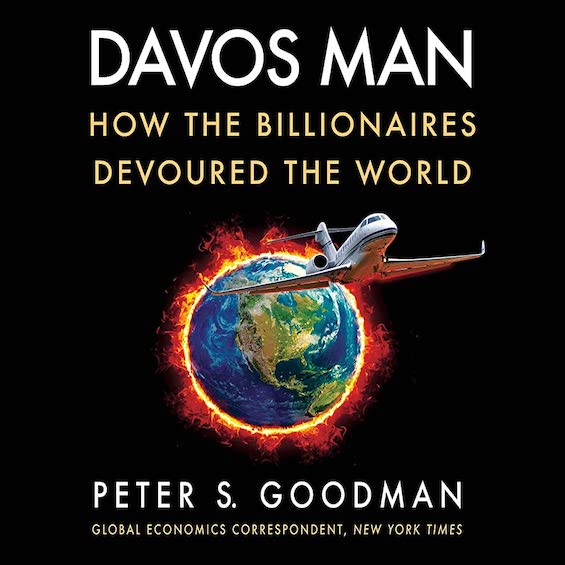
The Lords of Creation: The History of America’s 1 Percent by Frederick Lewis Allen
Today, many Americans puzzle over why the Great Recession happened. Amazon lists more than 1,000 books on the subject. But readers today might benefit from taking a longer view. Because, as Frederick Lewis Allen told the tale in The Lords of Creation nearly ninety years ago, the conditions that arose in the Gilded Age and the Roaring Twenties and lay at the root of the Depression bear an uncanny resemblance to those of the current era beginning late in the 1970s.
Janesville: An American Story by Amy Goldstein
By following the fortunes of a half-dozen families in Janesville, Wisconsin, Goldstein dramatizes the impact of the Great Recession of 2008 in the years following the closure of a large Chevrolet factory. The recession officially ended in June 2009, but Goldstein eloquently shows that the pain it inflicted on the people of Janesville has lasted to this day. This is, indeed, an American story.
Black Edge: Inside Information, Dirty Money, and the Quest to Bring Down the Most Wanted Man on Wall Street by Sheelah Kolhatkar
The central character is this superb piece of investigative journalism is Steven A. Cohen, the founder of a hedge fund named SAC Capital Advisors. Cohen is clearly a loathsome human being—obsessed with greed, contemptuous of the law, and ruthless beyond compare. However, Cohen is also undeniably brilliant. Occasionally he’s referred to as the greatest stock trader in Wall Street history.
Chain of Title: How Three Ordinary Americans Uncovered Wall Street’s Great Foreclosure Fraud by David Dayen
Chain of Title is an expose of the criminal conduct that ran rampant during the fallout from what is so delicately referred to as the “housing bubble.” (The phrase sounds frivolous, doesn’t it?) With a focus a handful of activists, most of them based in the state of Florida—among the states hardest hit by the foreclosure crisis—Dayen uncovers the truth about the role of law enforcement officials and the Wall Street banks in forcing an estimated six million people out of their homes. It’s a grim and deeply unsettling story.
Davos Man: How the Billionaires Devoured the World by Peter S. Goodman
To illustrate how a tiny, often anonymous group of billionaires has managed to amass unprecedented riches while impoverishing untold millions of the rest of us, Goodman develops his narrative around five individual men and explores their impact in five countries. The five men are Internet entrepreneurs Jeff Bezos (Amazon) and Mark Benioff (Salesforce), banker Jamie Dimon (JPMorgan Chase), private equity investor Stephen Schwartzman (Blackstone), and investment manager Larry Fink (BlackRock). The five countries Goodman most closely examines are the United States, the United Kingdom, Italy, France, and Sweden. As he makes clear, the overwhelming majority of people in all five countries have suffered enormously as a result of the business practices of those five men—above all, their unceasing effort to avoid paying taxes.
Flash Boys: A Wall Street Revolt, by Michael Lewis
In Flash Boys, the bestselling business journalist Michael Lewis tells the tale of the arcane and long-secret phenomenon known as high-frequency trading (HFT). The book reads like a thriller, showcasing the author’s legendary writing talent. Like the best fiction, it’s centered on people, not abstract processes or institutions, and the prose sings.
Money: The Unauthorized Biography—From Coinage to Cryptocurrencies, by Felix Martin
A macroeconomist and bond investor with a Ph.D. in Economics from Oxford University asserts that misunderstanding of what money is and isn’t has had doleful consequences, including the Great Recession sparked in 2008. “Money is not really a thing at all but a social technology,” he writes. It’s simply a form of credit, an IOU. Coins and currency are simply representations of money; so are bonds, letters of credit, commercial paper, and other financial instruments that facilitate trade today. Before 1973, when Richard Nixon took the US off the gold standard, money was given value by precious metals, either silver or gold. This led to what the author sees as confusion, giving kings, bankers, and the practitioners of that dismal new social science, economics, reason to believe that money possessed some objective reality quite irrespective of the parties to any financial exchange.
All the Devils Are Here: The Hidden History of the Financial Crisis, by Bethany McLean and Joe Nocera
See Top 10 above for capsule description.
The Big Short: Inside the Doomsday Machine, by Michael Lewis
A handful of marginal players in the financial industry populate the pages of Michael Lewis’ masterful study of the decline and fall of Wall Street. Lewis’ story largely ignores their much better-known counterparts who played such leading roles in making the mess that has been troubling us all ever since. These little-known speculators and investors actually managed to make a bundle from the Great Recession. Lewis explains how.
The Devil’s Casino: Friendship, Betrayal, and the High Stakes Games Played Inside Lehman Brothers, by Vicky Ward
A Vanity Fair writer offers an intimate, inside look at the people of Lehman Brothers, the venerable Wall Street investment bank whose record-setting bankruptcy is widely credited with triggering the meltdown of 2008. Like the close-up portraits of the rich and famous that often appear in the pages of her magazine, this book is nothing more, and nothing less, than a character study of homo sapiens wallstreetianus. It’s brilliantly done.
Good books about business history: business and society

American Oligarchs: The Kushners, the Trumps, and the Marriage of Money and Power by Andrea Bernstein
Bernstein’s impeccably researched account is grounded in the lives of Trump’s grandfather, Frederick Trump, and Jared Kushner’s, Joseph Kushner. Both were immigrants from Europe, Trump from Germany in 1885, Kushner from Poland in the years following World War II. And both Frederick Trump and Joe Kushner were homebuilders. The wealth they left behind on their passing became the foundation of the fortunes now enjoyed by Donald Trump and Jared Kushner.
Chocolate Wars: The 150-Year Rivalry Between the World’s Greatest Chocolate Makers by Deborah Cadbury
See Top 10 above for capsule description.
Golden Gates: Fighting for Housing in America by Conor Dougherty
Walk around almost any big American city long enough and you run the risk of tripping over some homeless person sprawled on the sidewalk. The problem has been half a century in the making, but it’s gotten far, far worse during the past decade. And nowhere is it more severe than in California’s metropolitan cities of Los Angeles and San Francisco. Here — I’m writing from Berkeley, across the Bay from San Francisco — you’re likely to hear any one of a number of explanations for how things have gotten so bad. But if you want to know how to sort through the myths and misconceptions about housing and homelessness in America, a great place to start is Conor Dougherty’s outstanding new book, Golden Gates.
The Last Kings of Shanghai: The Rival Jewish Dynasties That Helped Create Modern China by Jonathan Kaufman
In Bombay, young David Sassoon “and his eight sons built a business empire across Asia. Though he never learned Chinese or English, he piloted his family to dominate the China trade, subdue and shape Shanghai, control the opium business, bankroll the future king of England [George V], and advise prime ministers.” David Sassoon was a force of nature. It’s no exaggeration to write that he helped build modern China. For decades, much of Shanghai’s skyline was the result of his investments. When he and his family were referred to as “the Rothschilds of the East,” he was contemptuous. He was richer than they were and regarded them as arrivistes.
Transaction Man: The Rise of the Deal and the Decline of the American Dream by Nicholas Lemann
“Today the Transaction Man mentality,” Lemann writes, “which is neither liberal nor conservative, is as deeply rooted as the Organization Man mentality was when William Whyte conferred a name on it. When a challenge presents itself—how to educate our children, how to fight poverty, how to change politics, how to improve the tone of a polarized society—any proposed solution that can be characterized as relying on bureaucracies, organizations, government agencies, or established interest groups is doomed to lose the argument. Only innovation, disruption, destructuring, and individualizing can possibly work.”
Fulfillment: Winning and Losing in One-Click America by Alec MacGillis
In two books published over the course of the past decade, Brad Stone has told the inside story of Amazon’s rise. The Everything Store and Amazon Unbound chronicle the company’s growth from a quirky online bookstore founded a quarter-century ago into the corporate juggernaut it has become. Now another journalist, Alec MacGillis, surveys Amazon from the outside. In Fulfillment: Winning and Losing in One-Click America, he roams across the country from El Paso to Seattle, to Northern Virginia and the small towns of Ohio and Pennsylvania. At every location, he introduces Amazon employees, local officials, and activists bound up in the repercussions of the company’s explosive growth. Fulfillment surveys the damage Amazon has done.
The Attention Merchants: The Epic Scramble to Get Inside Our Heads by Tim Wu
Beginning with the advent of the penny press in the 1830s, Columbia University law professor Tim Wu explores in telling detail the now centuries-long battle between the commercial interests who want to seize our attention for their own ends and the individuals who want to keep our lives private and access news, information, and entertainment without distraction. This is a colorful story, and Wu tells it well.
Right Out of California: The 1930s and the Big Business Roots of Modern Conservatism, by Kathryn S. Olmsted
Most observers of the emergence of what has come to be called “conservatism” in America locate its roots in the 1950s, 60s, and 70s. In Right Out of California: The 1930s and the Big Business Roots of Modern Conservatism, historian Kathryn Olmsted argues that the origins of the movement lie instead in the blood-stained labor conflicts in California’s Central Valley and Imperial Valley in the years before World War II. Ostensibly, the growers were fighting Communism, which was far from always the case.
Tangled Vines: Greed, Murder, Obsession, and an Arsonist in the Vineyards of California, by Frances Dinkelspiel
In Tangled Vines, journalist Frances Dinkelspiel tells the colorful story of California’s wine industry, enriching our understanding of the state’s history — and she makes it read like a thriller. The focal point of Dinkelspiel’s tale is the tragic 2005 fire that destroyed as much as $250 million worth of wine stored at the cavernous Wines Central warehouse in Vallejo. A 300-pound, self-styled wine expert named Mark Anderson set the fire in an attempt to cover up his theft over many years of millions of dollars worth of wine entrusted to his care.
Freedom’s Forge: How American Business Produced Victory in World War II, by Arthur Herman
See Top 10 above for capsule description.
Hell’s Cartel: IG Farben and the Making of Hitler’s War Machine, by Diarmuid Jeffreys
See Top 10 above for capsule description.
The Quest: Energy, Security, and the Remaking of the Modern World, by Daniel Yergin
In 1991 Yergin published The Prize: The Epic Quest for Oil, Money, and Power, which gained the #1 spot on the New York Times nonfiction best-seller list, won the Pulitzer Prize, and established his firm, Cambridge Energy Research Associates, as the country’s most sought-after voice on energy issues. Two decades later, The Quest broadens and updates the earlier book, relating the monumental changes in energy markets wrought by technological innovation, historic geopolitical shifts, and our changing views of energy and climate.
Factory Man: How One Furniture Maker Battled Offshoring, Stayed Local—and Helped Save an American Town, by Beth Macy
If you want to understand globalization and its impact on the US economy and on millions of hard-working Americans, Factory Man is a brilliant introduction. The man under Macy’s microscope, John W. Bassett III, was the grandson of the founder of what had been the largest manufacturer of wooden furniture in America for many years. After decades of successful and profitable work opening and running dozens of furniture factories, JBIII (as he’s called familiarly) organized the coalition that successfully persuaded the US government to pursue trade sanctions against dumping by Chinese furniture makers.
Empire of Cotton: A Global History, by Sven Beckert
Here’s a new take on the history of capitalism, recasting the Industrial Revolution as a natural extension of the European mercantile expansion that preceded it. In Empire of Cotton, Harvard historian Sven Beckert asserts that the more familiar industrial capitalism that came of age in the nineteenth century was grounded in what he terms “war capitalism” — the relationships forged by the European conquest of the Global South by force — and, in particular, on slavery.
The First Tycoon: The Epic Life of Cornelius Vanderbilt, by T. J. Stiles
See Top 10 above for capsule description.
The Curse of Bigness: Antitrust in the New Gilded Age, by Tim Wu
The Curse of Bigness highlights one of the most significant policy questions facing American society. Tim Wu insists it’s time to restore America’s lost commitment to the antitrust legislation passed in the late nineteenth and early twentieth centuries. Break up big corporations, he urges, since the increasing concentration of wealth in fewer and fewer hands has enabled the superrich to get their way with Congress and frustrate the popular will. Nothing less than the integrity of our democratic system is at stake.
For related reading
Check out Good books about finance and economics.
You might also find books you’d like to read on 20 top nonfiction books about history and Top 20 popular books for understanding American history.
And you can always find my most popular reviews, and the most recent ones, on the Home Page.

